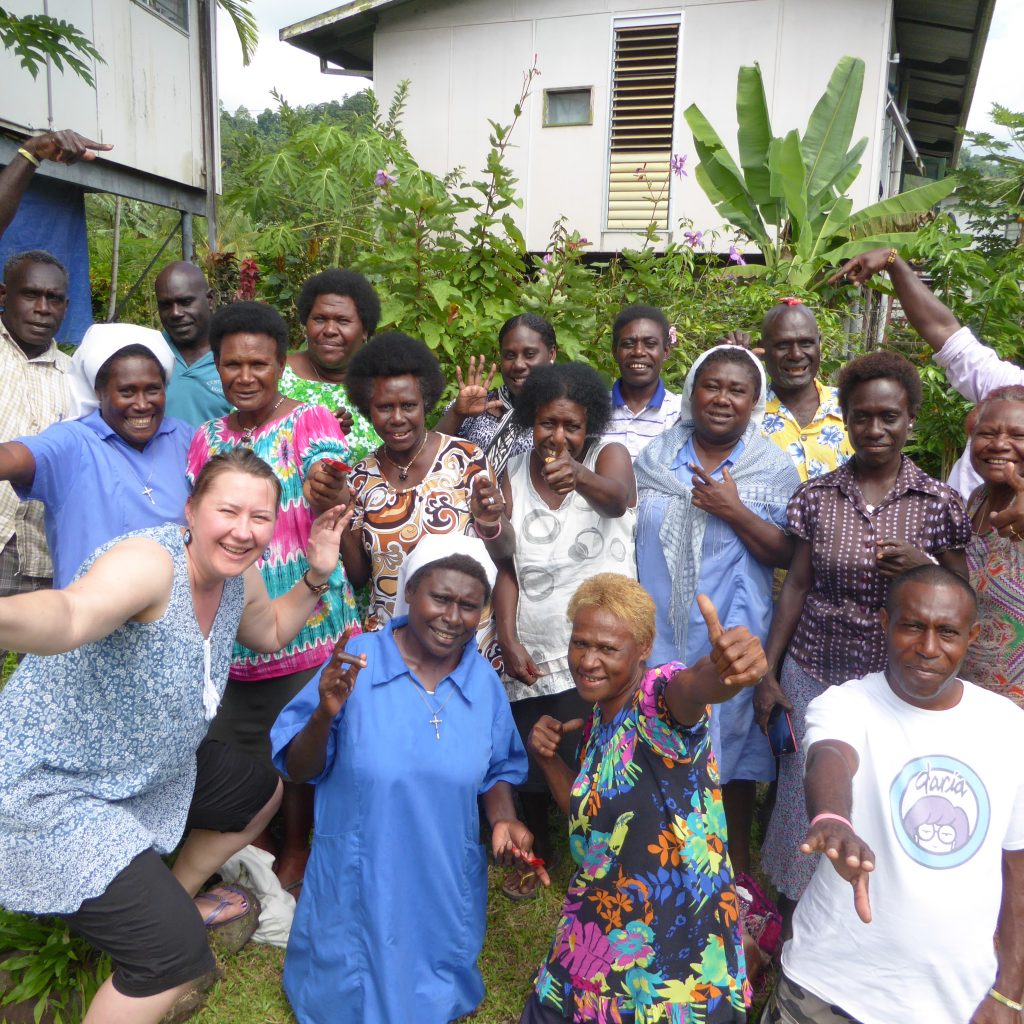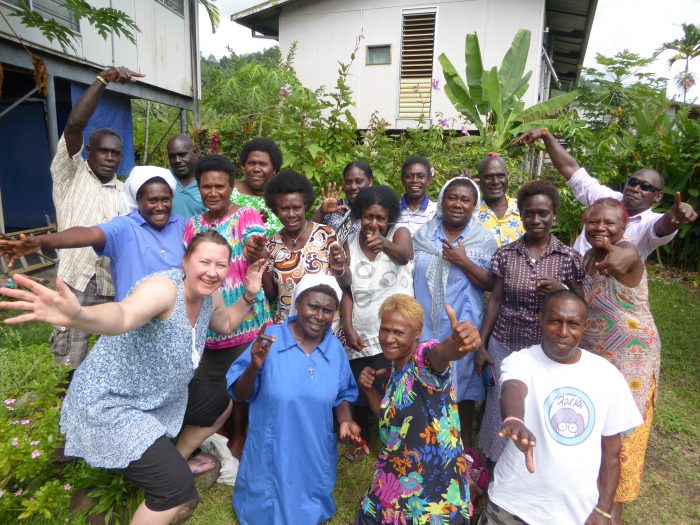
Building capacity in disability inclusion in Papua New Guinea

During August and September 2016 IWDA’s partners Voice for Change and Nazareth Centre for Rehabilitation took part in groundbreaking workshops on disability inclusion.
The participants learned about approaches to disability, barriers to participation for persons with disabilities, and discussed the ways society treats and reacts to people with disability.
IWDA Program Manager, Elena Leddra says the participants learned about components of Disability Inclusive Development and discussed how to identify people with disabilities using Washington Group questions. These questions are designed to provide common definitions, standards and methodologies in the production of statistics about people with and without disabilities.
“The participants enjoyed the practical exercises and practiced designing disability inclusive activities for their organisations. All organisations committed to developing organisational disability inclusion policies and put their new knowledge into practice in their work,” Elena said.
IWDA’s research in countries throughout the Asia Pacific region, has shown that women with disabilities experience multiple disadvantages resulting from the interplay between gender, disability and poverty. Global statistics show that women with disabilities are two to three times more likely to be victims of physical and sexual abuse and are also more likely to be insulted, belittled and intimidated. The barriers to seeking support are also dangerously high.
Capacity development is part of IWDA’s commitment to partnerships with women’s human rights organisations. Disability inclusion training is designed to build the capacity of organisations to support and prevent violence against women, including women and girls with disabilities.
Understanding the complexities and intersectionality of gender inequality, gender-based violence and disability, IWDA pays special attention to building capacity of partner organisations to address the challenges that women face, no matter their age, ethnicity, sexuality or ability.

